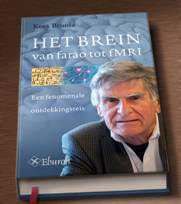Tenure Track Position “Neuropsychology of Language and Language Disorders”
Application deadline: 17 May 2015
Responsibilities
The research consortium Language in Interaction invites applications for a tenure track position, offered with a view to long-term embedding of neuropsychological research in a clinical setting, and enhancement of collaborative research in the field of language-related disorders.
The specific focus of the position is on the neuropsychology of language, bridging gaps at the clinical /non-clinical intersection (e.g. language-related disorders). This integration can be achieved using a varied set of methods, such as behavioural experimentation, functional neuroimaging (fMRI, EEG, MEG), transcranial magnetic stimulation (TMS), and formal computational modelling of language processes.
You will head an independent research group to be established to promote the interaction between clinical and pre-clinical researchers. You will be expected to conduct research in one or more research areas relevant to the position. Supervision of BSc, MSc and PhD projects will be part of your responsibilities. Administrative duties will include local and/or national committee memberships. With a view to continuation, the position may be expanded to include teaching and clinical work. You will be provided with budgetary resources, a PhD student or technician, materials and consumables.
Work environment
The Netherlands has an outstanding track record in the language sciences. The Language in Interaction consortium, sponsored by a Gravitation grant from the Netherlands Organization for Scientific research (NWO), brings together many of the excellent research groups in the Netherlands in a research programme on the foundations of language. Excellence in the domain of language and related relevant fields of cognition is combined with state-of-the-art research facilities and a research team with ample experience in complex research methods and utilization.
This position is equally shared by two research centres within Donders Institute for Brain, Cognition and Behaviour, Radboud University and RadboudUMC. The Donders Institute is a world-class research centre devoted to understanding the mechanistic underpinnings of human cognition and behaviour. The institute conducts research in an international setting with more than 600 researchers from 35 countries. English is the lingua franca. In 2013, the Donders Institute was assessed by an international evaluation committee as excellent and recognized as a ‘very stimulating environment for top researchers, as well as for young talent’.
What we expect from you
You should be a creative and talented researcher, a strong experimenter in the neuropsychology of language, and have a clinical background and experience with patient studies.
Other requirements are:
− a PhD degree in a field relevant to the position concerned;
− an established international reputation;
− strong track record of peer-reviewed international publications;
− experience with successfully applying for external funding;
− experience with (co-)supervision of PhD students;
− management skills required for academic leadership.
What we have to offer
– full time position
– a maximum gross monthly salary of € 5,171 based on a 38-hour working week; starting salary depends on qualifications and experience;
– you will be appointed for a period of 48 months; after 4 years, a permanent position will be offered if your performance is evaluated positively.
Are you interested?
Check this link for more information on this job offer and how to apply:
http://www.ru.nl/newstaff/vacaturebeschrijving?recid=554020


